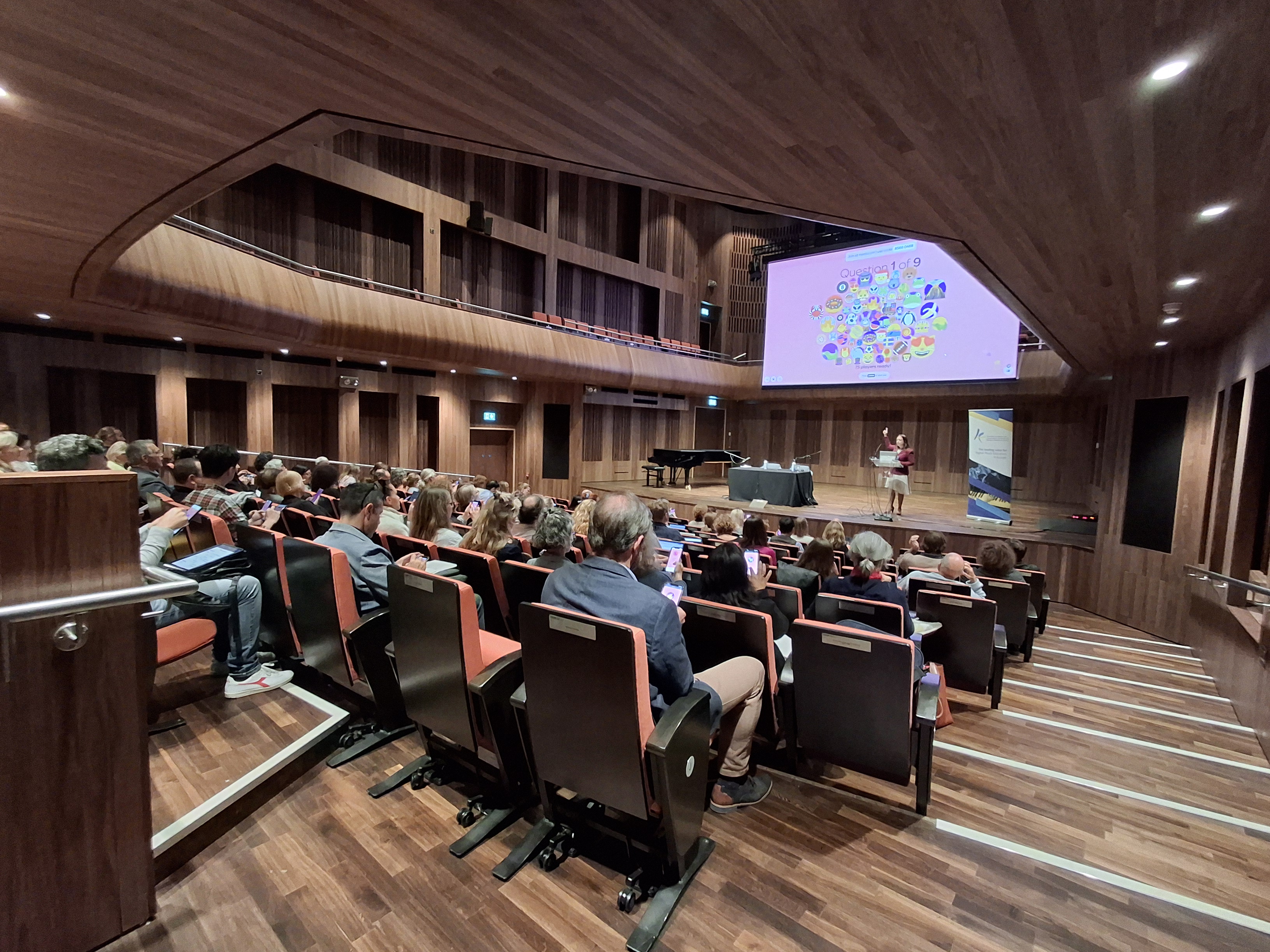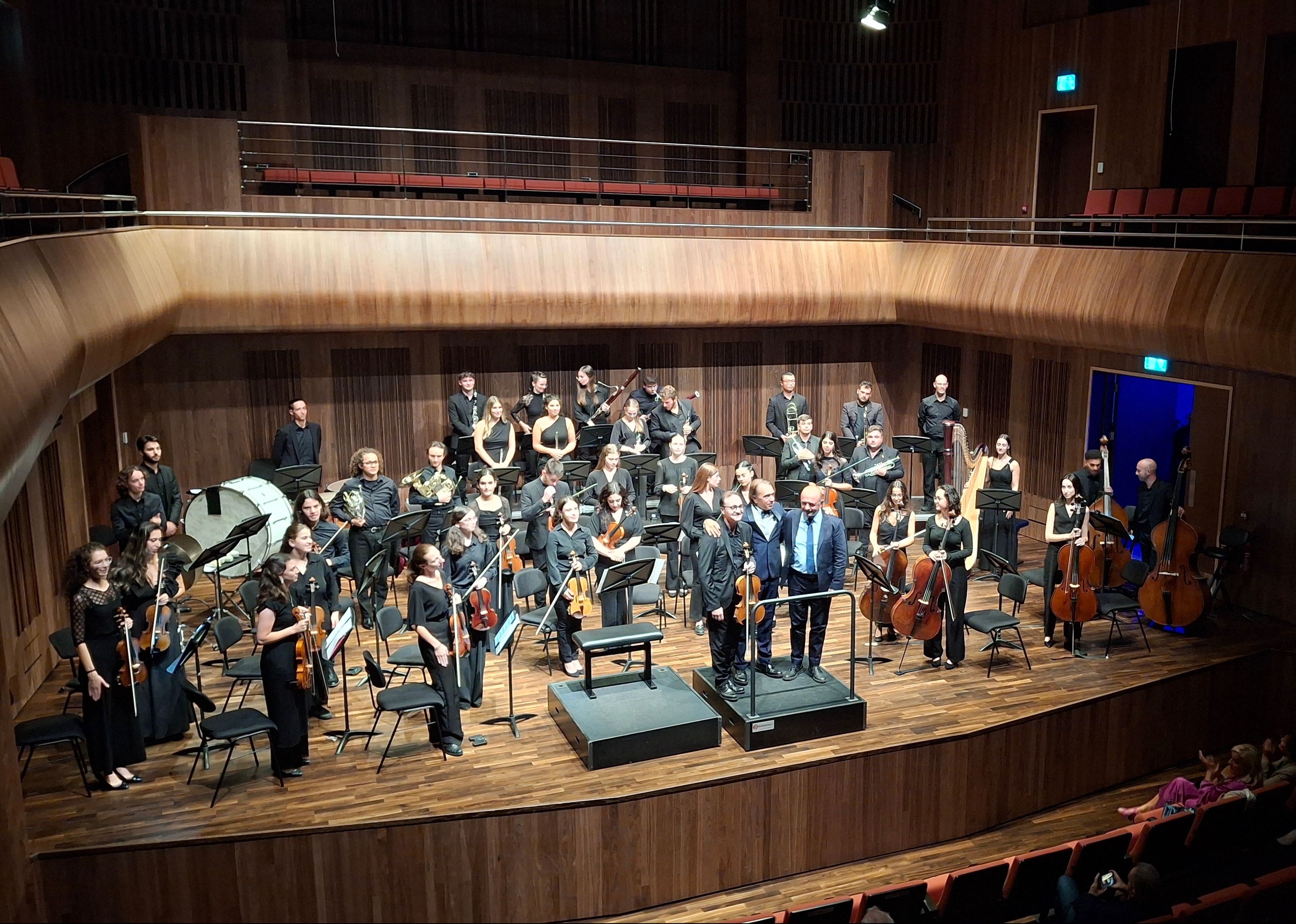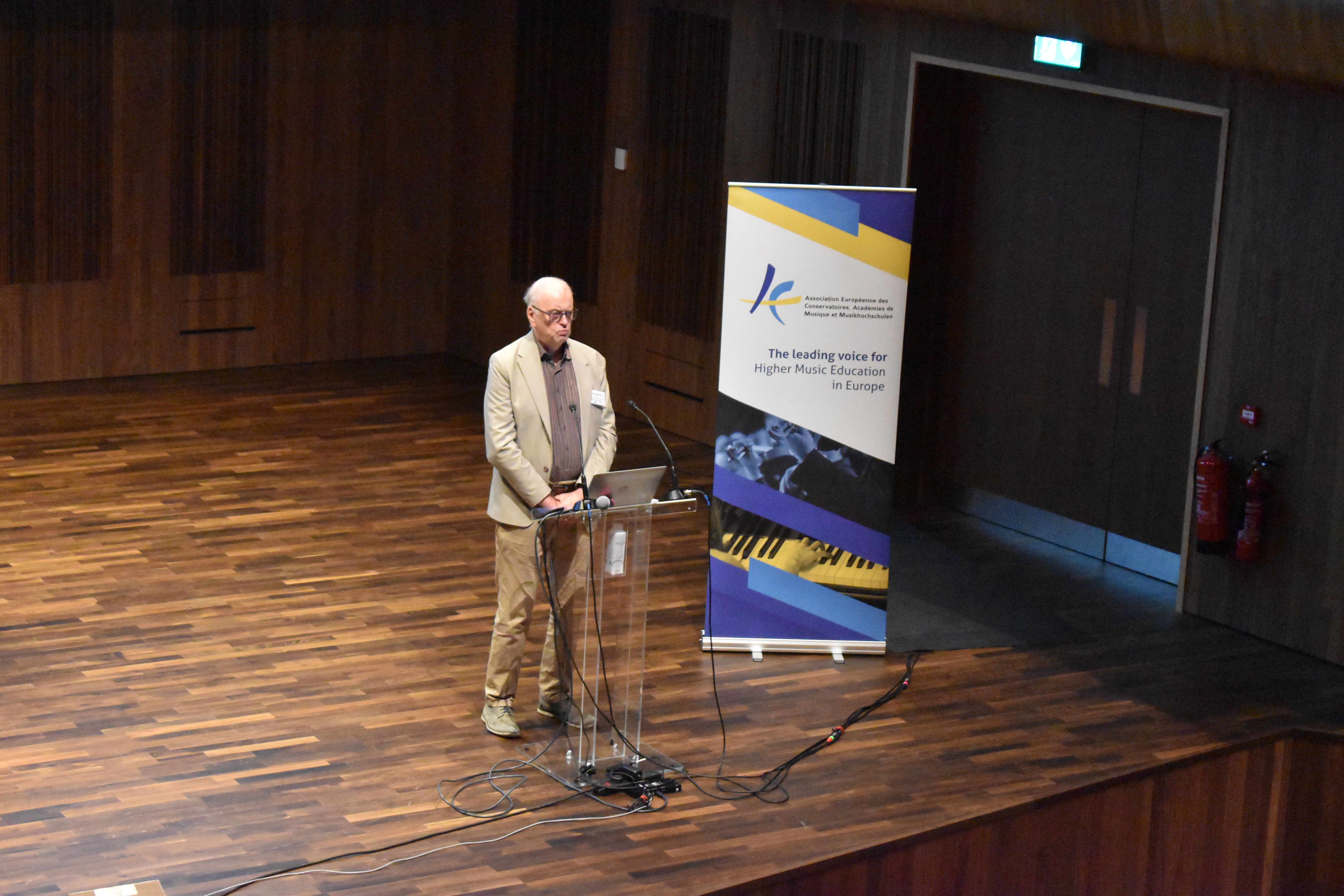The AEC Annual Meeting for International Relations Coordinators (IRC) 2024 was held from the 4th to the 7th of September at the Royal Irish Academy of Music (RIAM) in Dublin, Ireland. The four-day event brought together 240 participants for a series of workshops, discussions, and networking activities.
Wednesday, 4th September
The meeting commenced on Wednesday with registration and a warm welcome to the early arrivals. Participants gathered in the newly opened Whyte Hall auditorium at RIAM, a venue still imbued with the rich scent of fresh wood and the spirit of fresh starts and new opportunities taking shape!
The first session focused on the EASY Mobility Online System. Led by Sara Primiterra, AEC Project and Events Manager and the Mobility Online system team, this informative workshop provided attendees with a comprehensive, step-by-step overview of the platform’s latest improvements and refreshed website design.

Thursday, 5th September
Thursday began with two pre-conference workshops: “Blended Intensive Programmes (BIPs) in Higher Music Education” led by Oana Balan-Budoiu and “Power Dynamics in the International Context” by Gretchen Amussen. Newcomers to the conference were also welcomed in a dedicated session led by Dimitrios Marinos and Frauke Velghe, providing an introduction to AEC and the range of meetings taking place throughout the event.
The day officially opened with the first AEC Talk by Lyndsey Callaghan, titled “What is the Role of Higher Education in Developing Citizen Artists?” . This thought-provoking discussion set the tone for the day’s events.
Afternoon parallel sessions then explored a variety of topics, including:
- Navigating the challenges of distance mobility in higher education,
- Enhancing accessibility for students with special educational needs,
- Integrating sustainability into music performance and education, and
- Understanding and addressing power dynamics in the international context.
The day concluded with a welcome reception, offering participants an opportunity to connect and exchange ideas.
Friday, 6th September
Friday opened with the roundtable discussion led by international students: “Understanding Student Perspective: stories from international students at European HMEIs”. Moderated by Monica Vejgaard and Iveri Kekenadze (EPASA), the session highlighted the student perspective on mobility and international cooperation.

This was followed by an update on the EASY system and the Information Forum, where a variety of international initiatives were presented, including:
- EPASA – Empowering European Performing Arts Students
- IMPACT Project – International Master in Performance and Creative Technologies in Dance
- IN.TUNE Alliance – Innovative Universities in Music & Arts in Europe
Following the presentations, participants engaged in an Information Market, offering further opportunities for networking and collaboration. The afternoon featured breakout discussion groups, where participants explored topics such as project partnerships, international student well-being, the implementation of the European Student Card Initiative in HMEIs, International Credit Mobility, Erasmus Evaluation as a tool for quality enhancement, and EASY for external institutions and Multi-signature tool.

The day concluded with a much-anticipated networking event, featuring a Viking Splash tour, where participants boarded what first seemed like an ordinary bus. To their surprise and delight, the bus transformed into a boat, gliding from the streets of Dublin into the river for a unique and immersive city tour. In the evening, the ERASMUS Orchestra performed a concert featuring works by Donizetti, Puccini, and Fauré.

Saturday, 7th September
The final day began with an inspiring keynote presentation by John Sloboda, who discussed “How Classical Musicians Can Engage Their Live Audiences.” Sloboda examined shifting audience dynamics and proposed new paradigms for professional music training and conservatories, focusing on socially engaged projects and audience engagement strategies.

Following this, participants reconvened for group reflections on the event, offering feedback and suggestions to inform AEC’s future work on international relations.
The 2024 Annual Meeting concluded with a closing session, where it was announced that the next IRC meeting will be hosted by the Ferenc Liszt Academy of Music in Budapest, Hungary, on 17-20 September 2025 and the Call for new IRC wg members, which will be sent out to all AEC members in October.
AEC extends its heartfelt thanks to the Royal Irish Academy of Music, the IRCs Working Group, the speakers, and all participants for making this year’s meeting a record-breaking success. We look forward to continuing our work together to create more inclusive and accessible environments for everyone in Higher Music Education.







